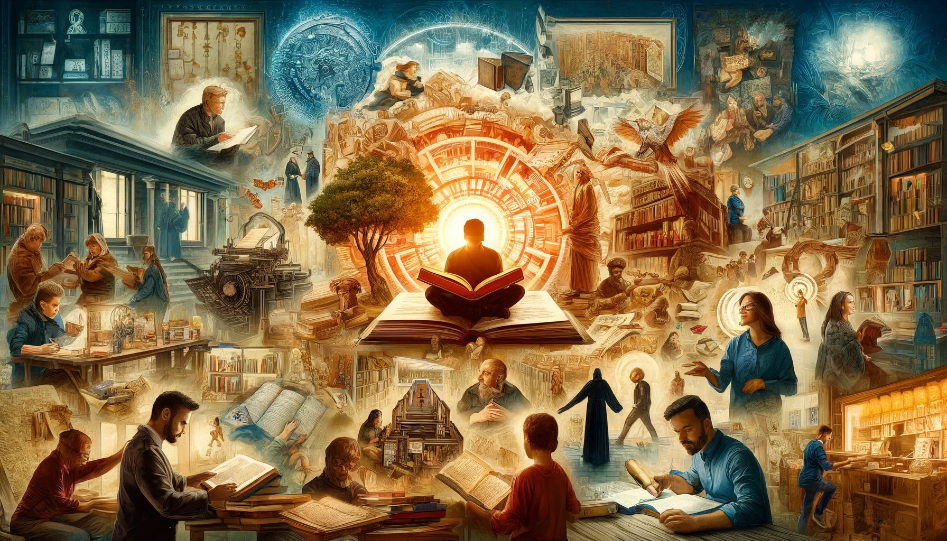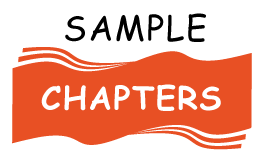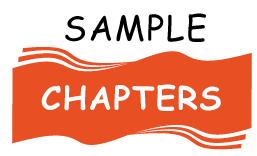The Transformative Power of Books: A Journey Through Literature

Introduction
Books have long been considered gateways to knowledge, imagination, and empathy. From ancient manuscripts to modern eBooks, the written word has the power to educate, entertain, and transform lives. In today's digital age, the significance of books remains undiminished, as they continue to play a crucial role in personal development and cultural enrichment. This article delves into the multifaceted world of books, exploring their historical significance, the rise of digital literature, their therapeutic power, and their impact on readers and society at large.
Historical Significance of Books
The Dawn of Writing
The history of books dates back to ancient civilizations where the first forms of writing were developed. The Sumerians of Mesopotamia, around 3400 BCE, used cuneiform script on clay tablets, marking the beginning of recorded history. Similarly, the Egyptians used hieroglyphics on papyrus scrolls. These early forms of writing laid the foundation for the development of books as we know them today.
The Evolution of Books
The invention of the printing press by Johannes Gutenberg in the 15th century revolutionized the production and dissemination of books. This innovation made books more accessible, leading to an increase in literacy rates and the spread of knowledge. The Gutenberg Bible, printed in 1455, is often cited as one of the earliest major books produced using movable type.
The Rise of Digital Literature
eBooks and Digital Reading
The advent of the internet and digital technology has transformed the way we consume literature. eBooks, which can be read on various electronic devices such as eReaders, tablets, and smartphones, have gained immense popularity. Platforms like Amazon Kindle, Apple Books, and Google Play Books offer vast digital libraries, making it easier for readers to access and purchase books from anywhere in the world.
Audiobooks: Modern-Day Storytelling
Audiobooks have also seen a significant rise in popularity, offering a convenient way for people to enjoy books while multitasking. Services like Audible and LibriVox provide an extensive range of audiobooks, narrated by professional voice actors, enhancing the reading experience. Audiobooks are particularly beneficial for individuals with visual impairments and those who prefer auditory learning.
The Therapeutic Power of Books
Bibliotherapy: Healing Through Reading
Bibliotherapy is the practice of using books as a therapeutic tool to support mental health and emotional well-being. Reading specific genres, such as self-help, motivational literature, or even fiction that resonates with a reader's personal struggles, can offer comfort, insight, and a sense of companionship. Healthcare professionals and therapists often recommend bibliotherapy as part of a holistic approach to treating anxiety, depression, and other mental health issues. By providing readers with new perspectives and coping strategies, books can play a significant role in the healing process.
Stress Reduction and Relaxation
Reading has been scientifically proven to reduce stress levels and promote relaxation. A study conducted by the University of Sussex found that reading can reduce stress by up to 68%, making it more effective than other relaxation methods like listening to music or taking a walk. Immersing oneself in a good book allows the mind to escape from daily pressures, leading to lower heart rates and decreased muscle tension. This makes reading an excellent way to unwind and decompress after a long day.
The Impact of Books on Readers and Society
Educational Benefits
Books are a fundamental tool for education, providing readers with knowledge on a wide range of subjects. They play a crucial role in the intellectual development of individuals, enhancing vocabulary, critical thinking, and analytical skills. Educational books, including textbooks, reference materials, and scholarly works, are essential resources for students and professionals alike.
Empathy and Emotional Growth
Reading fiction, in particular, has been shown to improve empathy and emotional intelligence. By immersing themselves in the lives and experiences of characters, readers develop a deeper understanding of diverse perspectives and emotions. This emotional engagement fosters empathy, helping readers to connect with others in meaningful ways.
Books as Catalysts for Social Change
Raising Awareness and Advocacy
Books have the power to raise awareness about critical social issues and inspire advocacy. Many influential books have sparked movements and changed societal perceptions, such as "Uncle Tom's Cabin" by Harriet Beecher Stowe, which played a significant role in the abolitionist movement, or "Silent Spring" by Rachel Carson, which ignited the environmental movement. Through compelling narratives and well-researched arguments, books can shine a light on injustices, mobilize communities, and drive social change.
Empowering Marginalized Voices
Books provide a platform for marginalized voices to be heard and stories to be told. Authors from diverse backgrounds can share their unique experiences, challenges, and perspectives, contributing to a richer and more inclusive literary landscape. This representation is crucial for fostering empathy, understanding, and solidarity among readers from different walks of life. By amplifying voices that have historically been silenced or overlooked, books help to promote equity and inclusivity.
The Economic Impact of the Book Industry
Job Creation and Economic Growth
The book industry is a significant contributor to the economy, creating jobs and generating revenue. It encompasses a wide range of professions, including authors, editors, publishers, graphic designers, printers, and booksellers. The publishing sector alone employs millions of people worldwide and supports various ancillary industries such as printing, logistics, and retail. Additionally, book-related events, such as literary festivals and book fairs, attract tourists and stimulate local economies.
Supporting Independent Bookstores
Independent bookstores play a vital role in the cultural and economic fabric of communities. These stores often serve as community hubs, hosting author readings, book clubs, and literary events. By supporting independent bookstores, readers contribute to the sustainability of small businesses and the preservation of diverse literary voices. Initiatives like Independent Bookstore Day and movements to shop local help to ensure the continued vitality of these important cultural institutions.
Promoting Books in the Digital Age
Book Promotion Websites
In the digital age, book promotion websites play a vital role in connecting authors with readers. Websites like KindleBookPromo.com and ListKindleBook.com offer platforms for authors to showcase their work, reach new audiences, and boost sales. These websites provide various promotional services, including book listings, email campaigns, and social media sharing, making book promotion more accessible and effective.
The Role of Social Media
Social media platforms have become powerful tools for book promotion and community building. Authors can use platforms like Twitter, Facebook, and Instagram to engage with readers, share updates, and participate in literary communities. Social media also facilitates the discovery of new books through recommendations, reviews, and book clubs.
Conclusion
Books are much more than mere sources of entertainment; they are powerful tools for personal growth, social change, and economic development. From their therapeutic benefits and stress-reducing qualities to their role in advocating for social justice and supporting local economies, books have a profound impact on individuals and society. By promoting and celebrating the written word, we can enrich our lives, foster empathy and understanding, and contribute to a more informed and connected world. Whether we turn the pages of a physical book or swipe through an eBook, the transformative power of literature remains a testament to the enduring importance of books in our lives.



